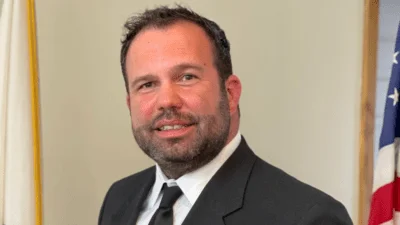The Republican plan to repeal and replace the Affordable Care Act, better known as Obamacare, which passed the U.S. House of Representatives in early May, is a positive move, a health care policy advisor for the Heartland Institute in Chicago said recently.
“Neither the Obamacare exchanges or the Medicaid expansion are the least bit sustainable in the longer term. Something has to be done,” John Garven, who is also president and founder of Benico, Ltd., an employee benefit brokerage and consulting firm in the Chicago area, told the Kane County Reporter. “The GOP had to get something passed in the House after having run on ‘Repeal and Replace’ since 2010.”
The House passed American Health Care Act (AHCA) by a narrow margin, 217 votes to 213. The bill awaits consideration in the Senate.
Under AHCA, Garven expects health insurance costs would be more affordable and the insurance market would be more competitive.
For example, under Obamacare, insurance premiums increased for those who bought coverage from the federal exchange. USA Today reported most states were subjected to increases of 20 percent, with states like Arizona, Minnesota and Oklahoma seeing increases of more than 50 percent. And those increases are accompanied by high deductibles.
Because of these spikes, Obamacare was a failure, Garven said. “And, to be clear, because of how it’s structured, the Obamacare exchanges/marketplaces are clearly in a death spiral, and it’s simply a matter of time, a very short time, arguably, before the system virtually implodes."
Additionally, under Obamacare many individuals have fewer plans to choose from. Out of 50 states, five had only one insurance carrier available, the New York Times reported. In Illinois by 2016, some individuals had three or more insurance options, but a majority of residents only had two carriers available.
“The main reason why only narrow network plans are being offered on the Obamacare exchanges is because the insurers that choose to remain selling exchange policies were desperate because of mounting financial losses to reduce them,” Garven said.
He said under Obamacare, many young individuals don't purchase insurance, which has a negative effect on older insurance holders. Because of the lack of young insurers, older holders are penalized and face higher insurance premiums and deductibles.
But the young insureds are just being smart with their money, Garven said.
“The individual mandate penalty is much less than the premium expense for coverage, and most millennials, except for the ones with significant medical expenses, don’t see where buying coverage makes any sense financially, and they’re right about that," he said.
Alyene Senger, journalist for Heritage, said Obamacare negatively affected those seniors in ways other than high premiums and deductibles. With Obamacare, seniors faced higher prescription prices and a fewer available plans, she said.
"Obamacare’s provisions threaten current seniors’ ability to access care and leave Medicare in jeopardy for future generations," Senger wrote.






 Alerts Sign-up
Alerts Sign-up